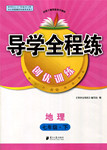题目内容
【题目】I went to the Tsavo National Park in northern Kenya for a film. We set off early for a distant water hole. A huge elephant covered with dry mud, drank calmly and deeply. He might have traveled 50 km to reach the water. He wasn’t going to hurry now. We thought that he’d drink a while and rest in the shade, and then drink again. What actually happened was that he drank deeply and stepped away. Then he suddenly fell down. Within minutes he was dead.
We called animal doctor Jeremiah Poghon immediately. He removed the head of a poisoned arrow from the elephant’s body, and let out over 100 liters of pus(脓)--the result of the elephant’s meeting with a poacher months ago.
Today’s poacher shoots from a distance. An arrow, covered with poison, is fired into the body of an elephant. If the poacher is lucky, the elephant might die in an hour or two; if not, he might have to follow the elephant for days before it dies. Often the arrow head fails to kill the elephant at once-- it doesn’t mean the poison won’t finally kill the elephant, but it will be a slow death.
Living in Tsavo through these times, I could see the results of poaching from time to time. When I think about the death of that elephant, what stays with me is the extraordinary silence after the shocking sound of his body hitting the ground. I took some comfort from the knowledge that as the dead body returned to the soil, some animals would benefit-- but I couldn’t escape the feeling that with the death of such a large animal, the world seemed to be a poorer and emptier place.
【1】While filming near the water hole, the author and his team ______.
A. knew the elephant was injured
B. found the elephant acted violently
C. tried their best to save the elephant
D. thought the elephant was in good condition
【2】According to the passage, the underlined word “poacher” is probably ______.
A. A hunter who kills or catches animals illegally
B. A kind of fierce meat-eating animal
C. A serious disease that can infect elephants
D. A kind of deadly poison
【3】Further examination showed that the dead elephant ______.
A. had suffered a lot
B. was killed by a poisonous needle
C. had suffered an hour or two
D. had had a good fight with a poacher
【4】Why did the author write the article?
A. To introduce the African elephant.
B. To show the cruelty of poaching.
C. To describe his filming experience.
D. To ask readers to protect wild animals.
【答案】
【1】D
【2】A
【3】A
【4】D
【解析】作者通过亲眼所见告诉我们猎杀者残忍杀害大象的行为,对此表示心痛,呼吁人们保护动物。
【1】D
推理判断题。根据第一段中的“A huge elephant, covered with dry mud, drank calmly and deeply. He might have traveled 50 km to reach the water. He wasn’t going to hurry now. He’d drink a while and then rest in the shade, and then drink again-or so we thought.”,可知他们以为大象很正常。故选D。
【2】A
词义猜测题。根据第二段第一、二句We called animal doctor Jeremiah Poghon immediately. He removed the head of a poisoned arrow from the elephant’s body, and let out over 100 liters of pus(脓)我们立刻给兽医Jeremiah Poghon打电话,他从大象身上拔出了有毒的箭。可知这是偷猎者数月前给射伤的。由此推知划线词的意思是“违法杀死或捕获动物的人”,故选A。
【3】A
推理判断题。根据第二段中的“…let out over 100 litters of pus (胺)-the result of the elephants meeting with a poacher(偷猎者) months ago”,可知这头大象曾经遭受了很大的痛苦。故选A。
【4】D
写作意图题。本文作者通过描述目睹一头大象因为被偷猎者的毒箭射中而痛苦死亡的情景,展示了偷猎者的残忍。故选D。

 导学全程练创优训练系列答案
导学全程练创优训练系列答案【题目】选词填空
根据语境,用方框中所给短语的适当形式填空。(每个短语仅使用一次)
by coincidence: on the other hand: be typical of: aim at: in possession of: in one's attempt as well as: a great deal of |
(1)She looked through information for the report.
(2) to reach the mountain top, they made preparations for everything.
(3)An old worker was found a painting of the Tang Dynasty.
(4)I'd like to eat out, but , I should be trying to save money.
(5)When the earthquake happened, , about 150 students were having PE lessons on the playground.
(6)Tom his friends is eager to visit China.
(7)The United States a developed country.
(8)Yesterday a person who was caught stealing was and fired to death by the policeman.